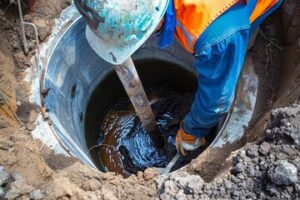More homeowners are choosing sustainable, resilient metal roofs for re-roofing projects. This is due to the fact that metal roofs provide architects with an infinite array of aesthetic possibilities.

The resonating benefits of quality residential Erie Metal Roofing go well beyond aesthetics. Many architects and designers also prefer metal over other roofing options for a variety of reasons:.
Metal roofs can withstand harsh weather conditions and environmental demands that would quickly damage or wear out asphalt shingles. A metal roof can withstand strong winds, heavy rains, snowfall and falling debris. This durability makes it ideal for homes located in stormy environments or areas prone to frequent hailstorms. The metal material also resists rust and corrosion, which is an added benefit for those who want to avoid expensive repairs and replacements.
Many architects and designers prefer metal roofing over asphalt because it has a long lifespan, is easy to repair, and offers a sleek aesthetic that enhances the home’s curb appeal. A metal roof will also protect against water and air pollution, as well as provide a fire barrier that will limit the spread of flames if a home is struck by lightning or engulfed in a wildfire.
The durability of metal roofing depends on the type of steel used and the paint finish, as well as the climate in which it is installed. For instance, the steel alloy that is best suited for coastal areas is aluminum, which can endure corrosive salt spray and is less likely to rust than steel. Stainless steel is another option, but it is more costly and requires a specialized roof coating that could increase upfront costs by thousands of dollars.
In addition to the longevity and durability of metal roofing, it is also resistant to fire and is compatible with rooftop solar panels. Its low heat conductivity will minimize the need for a fire suppression system and is a natural barrier to thermal radiation that can cause condensation and ice dams.
In fact, some types of metal roofs are rated to withstand the ravages of a signal #3 typhoon, which has 171-220 kph (105-136) winds. This high-strength roofing is especially useful in Seattle’s wet moss-prone climate, where it will not trap moisture or rot under pine needles and leaves. It also performs well on steep or low-slope roofs and can be installed with hidden fasteners for a clean, minimalist appearance. A wide range of finishes and styles are available to suit homeowners’ aesthetic preferences, from standing seam to stamped metal shingles that mimic clay tile, slate or asphalt.
It’s Affordable
Metal roofs are relatively affordable compared to other roofing materials, including shingles. However, the price tag of metal roofing depends on the material selected, profile, and gauge (thickness). The thickness of your roof is vital because it determines how much wind it can withstand and how well it will reflect sunlight. You should also consider labor and installation costs, which can add up since this is a demanding job that requires specialized knowledge and technical equipment.
Some of the most popular metal roofs include copper, galvanized steel, and zinc. These are ideal options if you live in an area with salty air, as they are resistant to corrosion. Copper is considered the most luxurious option, and it begins with a reddish bronze color before it develops a green patina that protects it from damage. This type of metal is extremely durable, and its low conductivity helps keep your home cool during hot weather.
Another reason to choose a metal roof is its energy efficiency. This is because the reflective surface decreases heat absorption, cutting down your cooling requirements and reducing electricity bills. However, you should also consider the thickness of your roof and the paint finish warranty before deciding on which type of metal to choose.
The weight of a metal roof is also important to consider. It’s typically heavier than a shingle roof, so you’ll need to have your foundation strengthened before installing this type of roof. In addition, you should check with your local building codes to ensure that your home can withstand the weight of a metal roof.
If you’re looking for a more budget-friendly alternative to shingles, consider corrugated metal panels. These are often used in industrial and agricultural settings, but they can be a stylish choice for residential roofs as well. This panel type features a wavy design that provides structural strength and visual appeal, making it an excellent choice for homeowners who want to save money while retaining durability. Corrugated panels are also quick to install and feature exposed fasteners, which reduce maintenance and repair costs.
It’s Recyclable
Metal roofs contain recycled content, which makes them a greener option when compared to traditional roofing materials. This recycled material can be reused in new roofs or even in future products. The panels also require less energy to manufacture than other roofing materials, making them an excellent choice when it comes to energy-saving construction.
In addition, metal roofs are 100 percent recyclable at the end of their life cycle, which significantly reduces landfill waste. They are also easy to recycle in places where recycling programs exist, and can be easily dismantled and repurposed when necessary. Many manufacturers use a high percentage of recycled metals in their roofing products, and offer an extensive line of color and style options to complement a home’s architectural design.
Unlike asphalt shingles, metal roofing is not vulnerable to rot or mold. This means you can enjoy a durable and beautiful roof with minimal maintenance throughout its lifespan. In fact, some homeowners report that their roofs can last for more than half a century without the need for repairs or replacement.
Because of this durability, metal roofs can stand up to hailstorms and hurricane-force winds with little problem. They are also fire-resistant, meaning they can protect you and your belongings from damage if there is a fire in your home.
A metal roof’s reflective capabilities help keep your home cool during the summer, which can save you money on energy bills. This is especially true if you choose ENERGY STAR(r) rated coatings and finishes, which can make a big difference in cooling costs.
When correctly installed by a professional, metal roofs can last for decades. This longevity translates to fewer repairs, a more stable energy bill, and greater overall comfort. In addition, this material is typically lighter than traditional roof tiles, which helps reduce the stress placed on load-bearing structures and can help avoid structural issues over time.
The versatility of metal roofing makes it a forward-thinking solution for homes that prioritize longevity and sustainability. Its sleek design and wide array of styles can blend with almost any home’s aesthetic, while providing a balance between function and style.
It’s Eco-Friendly
When it comes to sustainable building materials, metal roofs are hard to beat. Durable and energy efficient, they offer a number of green benefits that benefit both homeowners and the environment.
A quality metal roof is resistant to extreme weather events, such as strong winds, hail storms and heavy snowfall. This durability results in fewer damaged roofs, which means less money spent on emergency repairs and less trash created from the disposal of old roofing materials.
Additionally, a quality metal roof is an excellent insulator. The material helps to keep cool air in during the summer and warm air in during the winter, which can result in substantial energy savings. In fact, a metal roof can reduce cooling costs by up to 25%. This is thanks to the roof’s reflective properties, which help to decrease the amount of solar heat absorbed by the building.
Lastly, metal roofs are highly recyclable, meaning that at the end of their lifespans they can be recycled again and again without losing their performance capabilities. This is a major advantage over other roofing materials, which tend to clog up landfills after reaching the end of their useful lives.
Not only are metal roofs a great choice for sustainability and eco-friendly building practices, but they also look amazing. Available in a variety of styles and colors, including standing seam, metal shingles and corrugated metal, they can perfectly complement a home’s unique architectural design. Additionally, a variety of textures are available, including matte and glossy finishes. This gives homeowners plenty of creative flexibility and allows them to choose the perfect look for their property.
As the demand for eco-friendly building and renovations continues to grow, it’s important for contractors and homeowners alike to consider the environmental impact of the products they use on their projects. Metal roofs are a great way to minimize the impact that buildings have on the environment, while still offering unmatched durability and performance.




